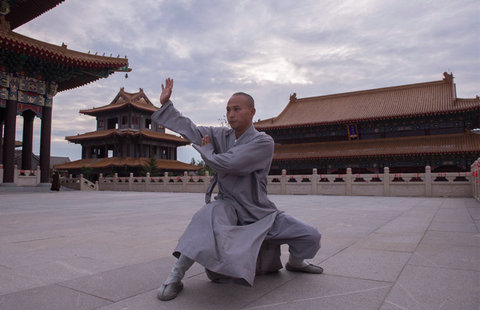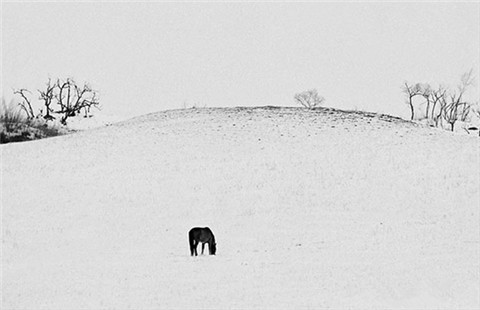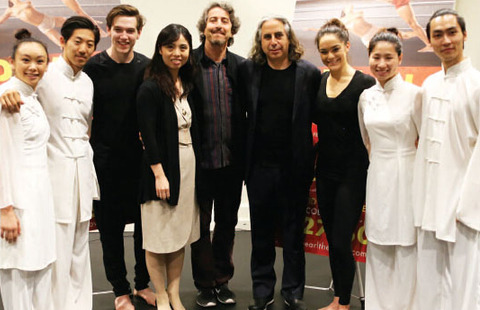'Hallucinatory realism' of Mo Yan springs from LatAm's magic realism
Updated: 2015-07-27 15:55
(Xinhua)
|
||||||||
The magic realism of Colombian writer Gabriel Garcia Marquez has greatly influenced China's Mo Yan, winner of the 2012 Nobel Prize in Literature, a Latin American expert on the Asian author said.
Peru's Carlos Masia, a lawyer by training and avid student of the Chinese author of the acclaimed 1987 novel "Red Sorghum Clan", recently gave a lecture in Lima on "Today's Chinese Society and the Work of Mo Yan," as part of the city's XX International Book Fair, running from July 17 to Aug. 2.
"Like all great artistic geniuses, Mo Yan has, without putting aside China's literary traditions, inherited that millennia treasure while absorbing some Western narrative techniques which he says he has borrowed from Gabriel Garcia Marquez," Masia told Xinhua.
Mo Yan's narrative tools and subjects evoke the literary style of Garcia Marquez, who was awarded the 1982 Nobel Prize in Literature for his masterpiece "One Hundred Years of Solitude".
Outrageous and mind-bending passages in some of his stories are what draw parallels with the magic realism of Garcia Marquez. In awarding him the Nobel Prize, the judges described him as a writer "who with hallucinatory realism merges folk tales, history and the contemporary."
"As the Swedish Academy noted, in an allusion to Garcia Marquez, it's hallucinatory realism," said Masia.
"Using Garcia Marquez's technique, Mo Yan proposes a universal narrative presented through the message of the individual but relating to the destinies of mankind, which not only concerns China, but also the world as a whole," said Masia.
"That is the grand message, delivered by a writer who comes from a region and a culture that are rarely known to the Western world," he said.
Despite the cultural differences between the Latin American reality that gave rise to magic realism and the reality of millennial China, Masia said, the Chinese author has succeeded in combining these influences to create a new way of relating stories, based on his own experiences.
It is the universality of Mo Yan's writings that have allowed his books to transcend China's borders and achieve international recognition, said Masia, but that feature is combined with an innate talent evident since his childhood.
"When he was a small boy, the only thing he was interested was telling stories. Even before he went to school, he had already begun telling popular tales or anecdotes he heard from the story tellers in his community," said Masia. "He has thousands of stories to tell, and the narrative techniques are just tools that he has acquired while narrating these stories."
- Tian'anmen gets early makeover for grand parade in September
- China eyes deepened cooperation with overseas NGOs
- Beidou navigation system moves a step closer to global coverage
- Integration will bring opportunity for overseas talent
- Ten photos you don't wanna miss (July 20-26)
- Sansha city, three years after its founding
 Elvis Festival pays tribute to the King of Rock 'n' Roll
Elvis Festival pays tribute to the King of Rock 'n' Roll
 Four-color rice turns paddy field into artwork
Four-color rice turns paddy field into artwork
 Images capture modern life of a warrior monk
Images capture modern life of a warrior monk
 The world in photos: July 20 - 26
The world in photos: July 20 - 26
 Amazing landscape of China in white and black
Amazing landscape of China in white and black
 Across America over the week (July 17- July 23)
Across America over the week (July 17- July 23)
 Unusual but true: 'Love' conquers all
Unusual but true: 'Love' conquers all
 Six dead as rainstorms wreak havoc in China
Six dead as rainstorms wreak havoc in China
Most Viewed
Editor's Picks

|

|

|

|

|

|
Today's Top News
Beijing condemns Somali attack, mourns deaths
China eyes deepened cooperation with overseas NGOs
Monster Hunt breaks Chinese box office record
Olympic bid panel cites city's merits
Astronomers discover most Earth-like planet yet
Seattle Chinatown leader killed in shooting
Flight details of Obama's Kenya trip leaked
2 killed, several injured in Louisiana theater shooting
US Weekly

|

|







